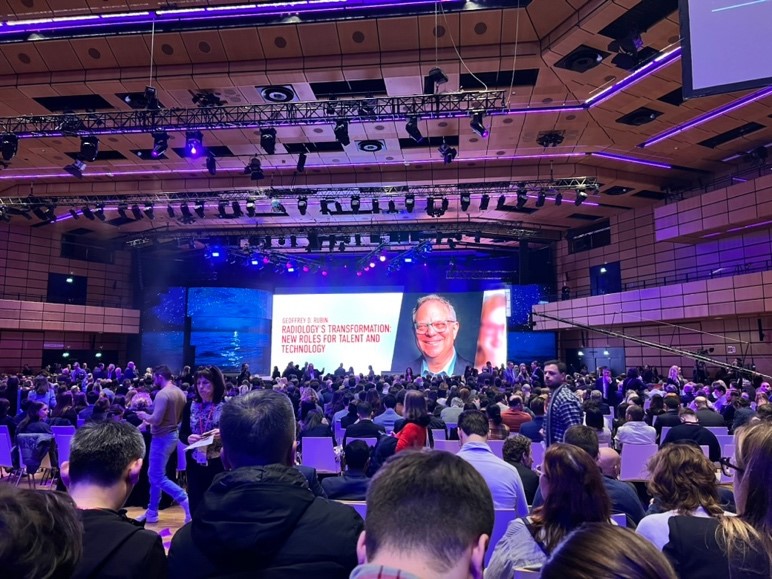NEWS
Verbesserte Trainingsphantome für die CT-Intervention
Der angehende Medizinphysikexperte Martin Volk aus der Universitätsklinik für Radiologie und Nuklearmedizin (AG Medizinische Physik) und der STIMULATE-Forschungsgruppe „iCT Clinic“ erreichte kürzlich in der Zusammenarbeit mit Kolleg:innen der Otto-von-Guericke-Universität Magdeburg am Forschungscampus STIMULATE herausragende Forschungsergebnisse zur Verbesserung der Polyvinylalkohol-Cryogel (PVA-C)-Herstellung. Diese Cryogele können unter anderem für realistische Trainingsphantome in minimal-invasiven Operationsverfahren mittels computertomographischer Bildgebung genutzt werden. Ziel dieser Arbeit war es, solche Phantome künftig effizienter durch eine mikrowellenbasierte Herstellung zu erstellen. Die Methode zeigte Vorteile durch kürzere Prozesszeiten und höhere Materialqualität gegenüber der etablierten Produktion.
Die Forschungsergebnisse stellte Martin Volk beim European Congress of Radiology (ECR 2024) vor, der vom 28. Februar bis zum 3. März 2024 in Wien stattfand und mehrere Tausend Forschende aus der ganzen Welt anzog. Dieses Jahr stand der Kongress unter dem Motto „Next Generation Radiology“ und setzte neue Maßstäbe in der radiologischen Forschung und Praxis. Der ECR ist ein Highlight für Radiologie-Expert:innen weltweit und bietet ein umfangreiches Programm mit Präsentationen, Workshops und Networking-Möglichkeiten.
Martin Volk trug mit seinem Beitrag, welcher hier einzusehen ist, zur Innovationskraft des Events bei.
Improved training phantoms for CT intervention
The prospective medical physics expert Martin Volk from the University Department of Radiology and Nuclear Medicine (Medical Physics Group) and the STIMULATE research group ‘iCT Clinic’ recently achieved outstanding research results in collaboration with colleagues from Otto-von-Guericke-University Magdeburg at the Research Campus STIMULATE to improve the production of polyvinyl alcohol cryogels (PVA-C). Among other things, these cryogels can be used for realistic training phantoms in minimally invasive surgical procedures using computer tomographic imaging. The aim of this work was to create such phantoms more efficiently in the future using microwave-based production. The method showed advantages through shorter process times and higher material quality compared to established production methods.
Martin Volk presented the research results at the European Congress of Radiology (ECR) 2024, which took place in Vienna from 28 February to 3 March and attracted several thousand researchers from all over the world. This year's congress was held under the motto ‘Next Generation Radiology’ and set new standards in radiological research and practice. The ECR is a highlight for radiology experts worldwide and offers an extensive programme of presentations, workshops and networking opportunities.
Martin Volk contributed to the innovative power of the event with his contribution, which can be accessed here.
